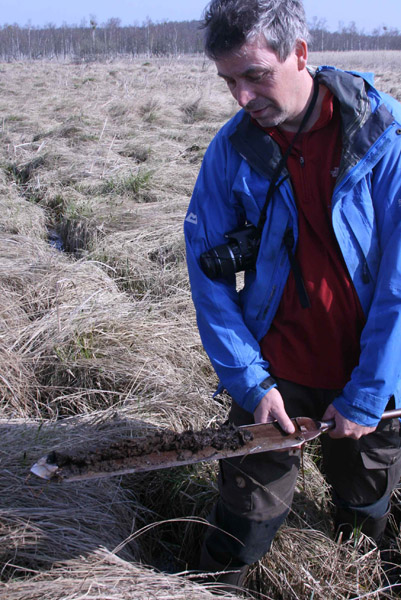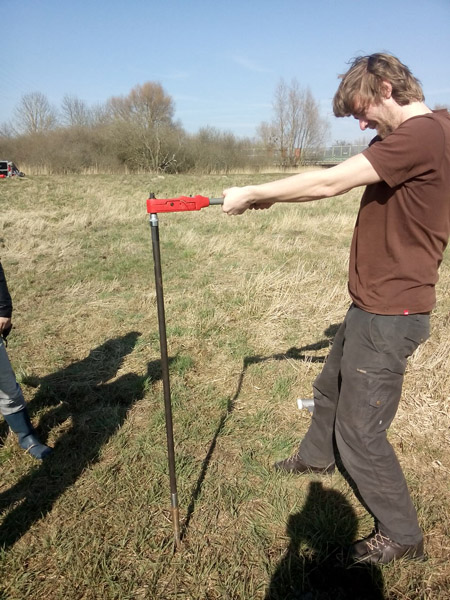REPEAT
Restoration and prognosis of PEAT formation in fens - linking diversity in plant functional traits to soil biological and biogeochemical processes
Contact: Franziska Tanneberger, Elke Seeber, Jürgen Kreyling
REPEAT is a joint project of the universities of Warsaw, Greifswald, Antwerp theNorwegian Institute of Bioeconomy Research and the Danube Delta National Institute for Research and Development in Romania as well as Wetlands International.
REPEAT aims to clarify the mechanisms of peat formation in fens by linking biogeochemical processes to soil community structure and biodiversity, as well as to plant belowground traits. The central research question is: What are the differences in below-ground production and decomposition, and eventually peat formation, between near-natural, drained and rewetted percolation fens along a climate gradient? In addition, we study the effect of trophy in near-natural fens in Eastern Poland and Romania, and assess the influence of machine mowing in near-natural and rewetted sites.
REPEAT is the first project to systematically address fen peat formation, the predominant mechanism of the temperate zone, in several European countries. The interdisciplinary project investigates both the least disturbed and the most disturbed percolation fens of Europe with a broad array of methods and assesses the restorability of the latter ones. To compare undrained, drained and rewetted fens, we analyse ecosystem processes in-situ in four countries, supplemented by ex-situ mesocosm and laboratory experiments.
The project also prepares recommendations regarding ecosystem services and resilience in fen rewetting. A particular focus is on restoration and paludiculture (harvest and use of biomass in wet peatlands). Stakeholders in participating countries are addressed through workshops, side events, and field days. A key stakeholder (Wetlands International) is involved as a consortium member.
REPEAT closely cooperates with the WETSCAPES project addressing fen peat formation in Northeast-Germany. At Greifswald University, the working groups Peatland Studies and Paleoecologyand "Experimental Plant Ecology" contribute to REPEAT. We are responsible for the work packages "Peat formation rates", "Producers diversity" and "Outreach to climate and biodiversity policy".
The German part of REPEAT is funded by the Deutsche Forschungsgemeinschaft.







